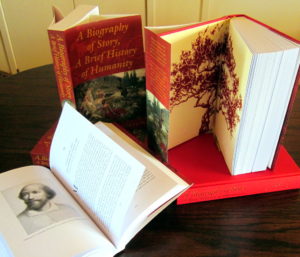 Writing a review is easier than you might think and an essential part of the reading process. It’s a great feeling to re-live the joy of a good read by sharing your enthusiasm with others. I’m not talking about literary criticism for obscure publications, but posting your responses to a book on your blog, or on Goodreads, Amazon and other online sites.
Writing a review is easier than you might think and an essential part of the reading process. It’s a great feeling to re-live the joy of a good read by sharing your enthusiasm with others. I’m not talking about literary criticism for obscure publications, but posting your responses to a book on your blog, or on Goodreads, Amazon and other online sites.
Gathering your thoughts about what you’ve read, and writing them down, even briefly, has three important benefits: it develops your own sense of what you prefer to read, and why; it offers browsers an insight into how other readers feel about a book, and it gives valuable feedback and recognition to the author who has invested his or her heart and soul in writing it.
If you want authors to keep writing the sort of books you enjoy reading, then it is important to write reviews.
If you need further encouragement, here are a few tips to get you started:
Read the book:
Yes, it does need to be said. To gain a constructive overview of any book, it is necessary to read it to the end. I am saddened by those ‘reviews’ that say: ‘I hated this book and gave up after 5 pages’ and rate it ‘one star’. Unless every other sentence is so packed with typos and errors that it is impossible to read, the likeliest reason for hating a book is that it is simply not the right read for that person. Readers who make a bad choice and find that it’s not their kind of book, or for some reason only read part of it, are not in a position to give an informed opinion and it is better they do not review at all.
Share your point of view:
Say briefly the point of view from which you are reviewing this book. Is it by an author you know and love, or a new name, or different genre you tried for the first time? Do you have some experience of the featured situation, period, or place that enables you to offer particular insights, or has it been a new experience for you? All reviews are opinions and it is helpful to others to have an inkling of where your opinions stem from.
Summarise for flavour:
You don’t have to provide a detailed synopsis of the story, but describe enough of what happens, where, and who the principal characters are to give others the flavour of the content and style without giving away the ending. Is it part of a series with established characters? In a historical romance, how much is romance and how much history, for example? For crime novels and thrillers, is it a brain-teaser, or action-packed and violent? For non-fiction, what is the scope of the book – introductory, or an in-depth study – and how easy is it to read and understand? What did you gain from it?
Quote a brief sample:
Quote a paragraph or five or six lines from the book to let other readers feel for themselves the style of writing, but remember: no spoilers. Be careful not to reveal the outcome, or critical clues that would ruin the reading for others. As I read, I find it helpful to put ‘post-its’ on passages that especially grabbed my attention, or to make a few brief notes.
Balance positive and negative:
Pick out what you appreciated most about the book. Was it that the characters seemed so real? Perhaps the setting was especially evocative? Was it a book to mull over slowly, soaking in the atmosphere, or did you stay up late to race to the end of the story? Both fiction and non-fiction can bring out emotions: was it sad, funny, scary?
If there are things about book that you wished had been different, point those out, too, and explain why. And it is helpful to suggest the kind of reader you think would enjoy the book: “I would recommend this book to anyone who…” because even a great book does not appeal to everyone.
Rating the book:
I dislike star rating books because there are no agreed criteria. Everyone is measuring something different, but ratings do affect a book and an author’s standing with online retailers, so it needs some thought. If you followed the points above in your review, it will help you decide. My own approach is to look at what the book sets out to do, what it claims to be, and rate it on how far I thought it achieved that, rather than whether I ‘loved’ or ‘hated’ it.
Best tip for writing a review: imagine you are having coffee with a friend who asks what you’ve been reading lately, and what you thought of it. Is it his or her sort of read?
 Trish Nicholson is the author of A Biography of Story, A Brief History of Humanity – an interweaving of literature and history that explores the power of stories in the tragedy and comedy of human affairs. A book-lover’s book.
Trish Nicholson is the author of A Biography of Story, A Brief History of Humanity – an interweaving of literature and history that explores the power of stories in the tragedy and comedy of human affairs. A book-lover’s book.

Great advice, Trish. I very rarely write reviews – mainly because I’ve read to many dreadful ones, either people who give up after 5 pages and slam it, or are clearly someone’s auntie and can say nothing but ‘this is wonderful’, so I wonder if the whole system has been devalued.
Plus, I used to review professional books (in my former, child protection, life) and am so not sorry to put all that behind me!
Hi Jo, I agree that there are some horrors up there, but both ‘5-page slammers’ and ‘aunties’ are pretty easy to spot. Their comments and ratings, though, do influence reputations and placings on online retail sites, and though these are often not the main outlet for print books, I think we can work to try and retrieve a decent online reviewing system. That was a major reason for writing the post – to encourage the more discerning readers to get in there and start adding real value to the system – the encourage the silent majority to ‘speak’ up.
I enjoyed your post, Trish. Having recently started reviewing books on my blog, it does feel a big responsibility to ensure I can justify my opinions, both positive and negative, but I’m also finding it invaluable for thinking critically about my own writing and what does and doesn’t work.
Thanks, Anne, and yes, I find the same. In fact, I find it quite hard to turn off the critique factor and simply read and enjoy a book these days. The connection with reading and writing is so great that, having completed this blog post, I started writing a much longer one on reading like a writer which I will post soon.